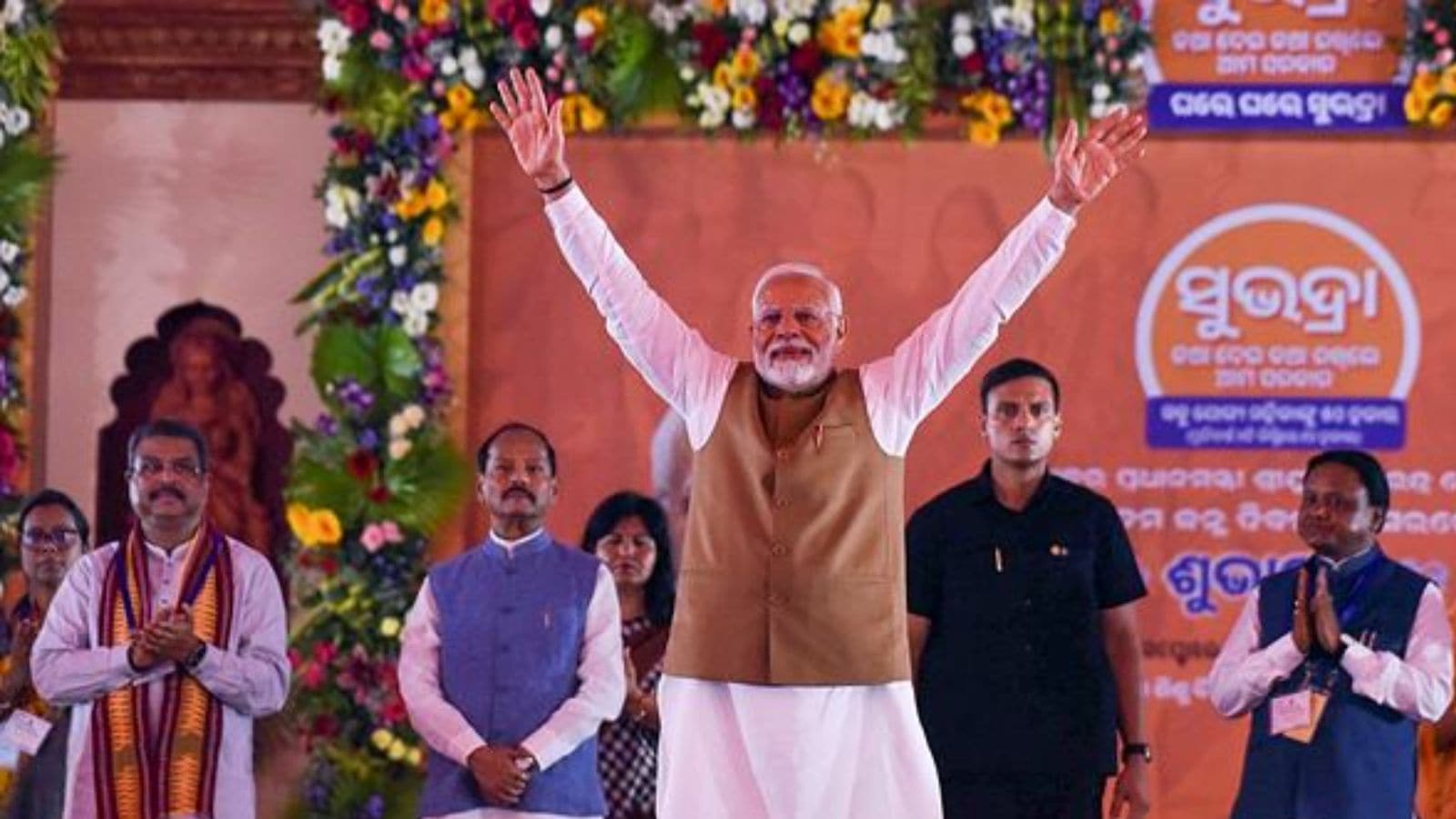 |
|
Prime Minister Narendra Modi has accused the Congress party of being envious of his participation in Ganesh Puja, a prominent Hindu festival. This accusation came in response to controversy sparked by Modi’s visit to Chief Justice of India D Y Chandrachud’s residence for the festival last week. Certain opposition parties had questioned the propriety of Modi’s visit, raising concerns about potential conflicts of interest and the blurring of lines between the judiciary and the executive branch.
Modi, speaking at a gathering in Bhubaneswar, asserted that the Congress and its allies were “rattled” by his participation in the religious observance. He further claimed that the Congress, currently in power in Karnataka, had engaged in an act of disrespect by “putting an idol of Lord Ganesh behind bars.” While the specific context of this allegation remains unclear, it likely refers to an instance of the authorities taking action against a Ganesh idol installation, perhaps due to violations of regulations or concerns about public safety.
Modi’s remarks highlight a recurring theme in Indian politics: the use of religion as a political tool. While the festival of Ganesh Utsav is celebrated widely across India, the Congress, a secular party, has historically been more cautious in its engagement with religious events. Modi, on the other hand, has often used Hindu festivals and symbols to connect with his base and project a strong Hindu identity. This approach has been seen as both a way to garner political support and as a strategy to consolidate a Hindu vote bank.
Beyond the immediate controversy, Modi’s comments offer insight into the deeper political divisions within India. The Congress’s questioning of Modi’s visit, while perhaps rooted in concerns about procedural propriety, has been interpreted by some as an attempt to delegitimize the Prime Minister’s actions. This interpretation, in turn, fuels Modi’s narrative of a Congress party that is anti-Hindu, anti-national, and out of touch with the religious sensibilities of the majority of Indians. Such rhetoric serves to further polarize the political landscape and deepen existing divisions along religious lines.
The ongoing debate surrounding Modi’s Ganesh Puja visit, and the Congress’s response to it, underscores the delicate balance between religion and politics in India. As the nation navigates its increasingly diverse and complex social fabric, it remains to be seen how these tensions will be managed and whether the use of religion for political gain will continue to be a defining characteristic of Indian politics.
Source: Congress rattled because I participated in Ganesh Puja: PM Modi
